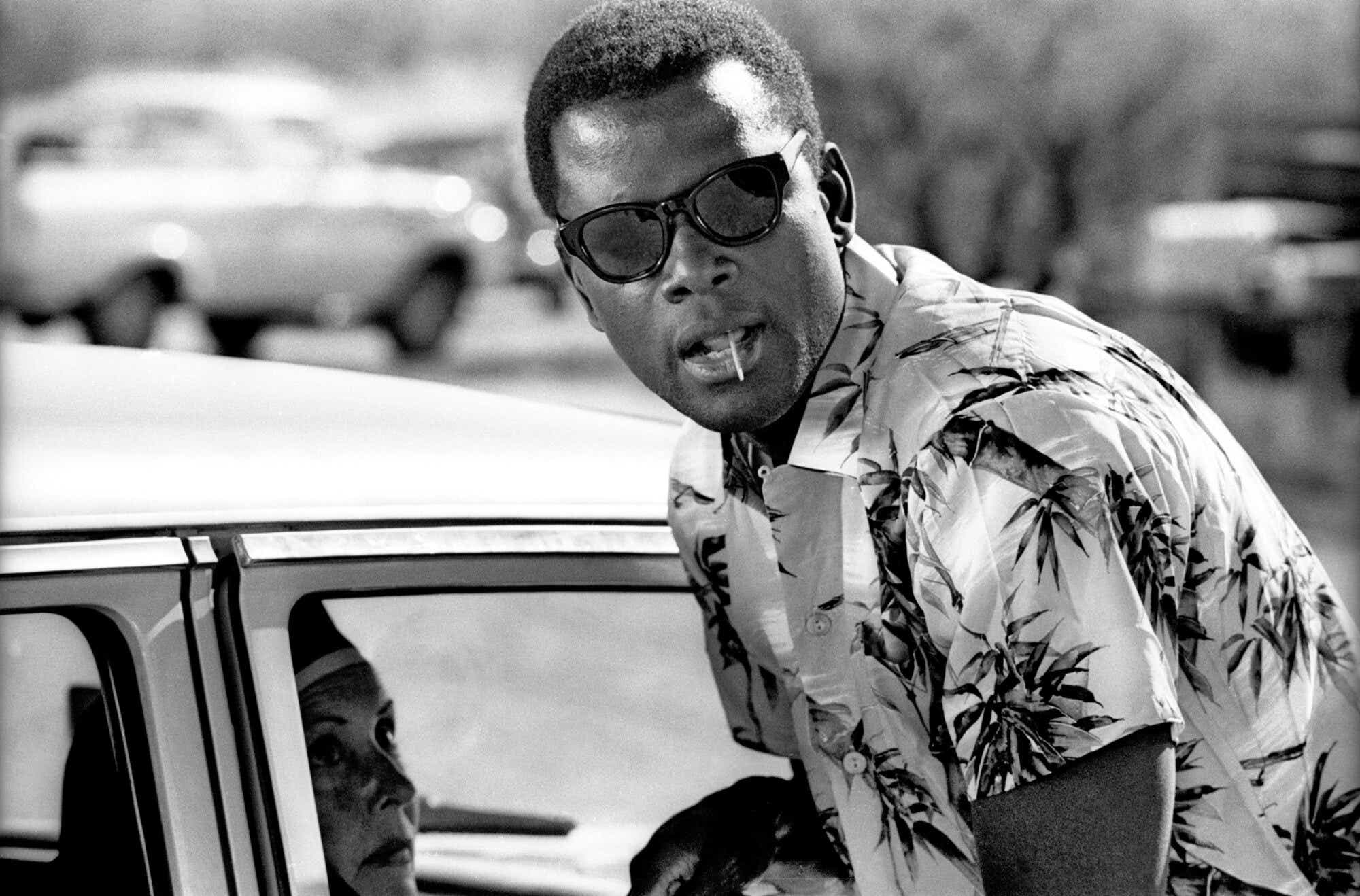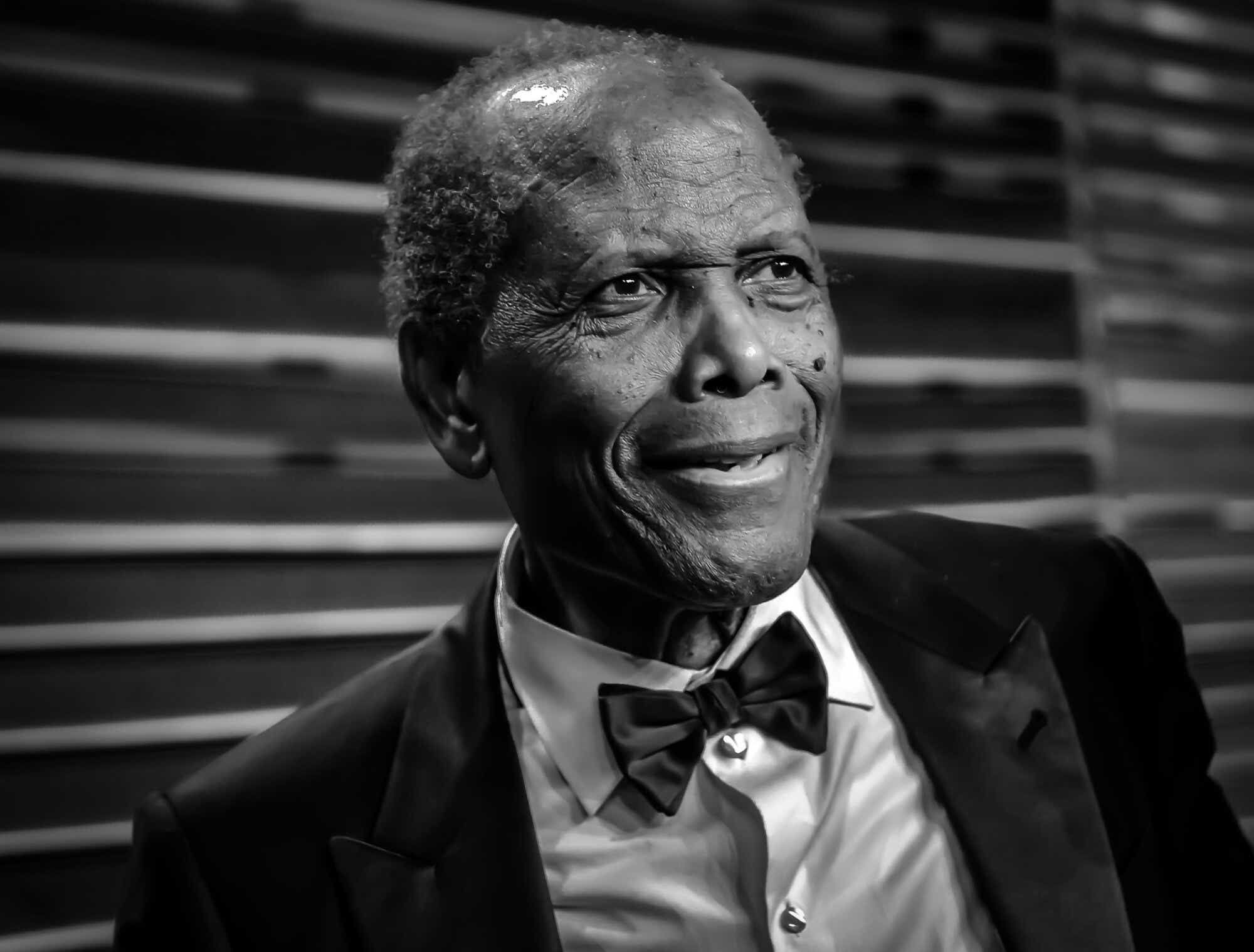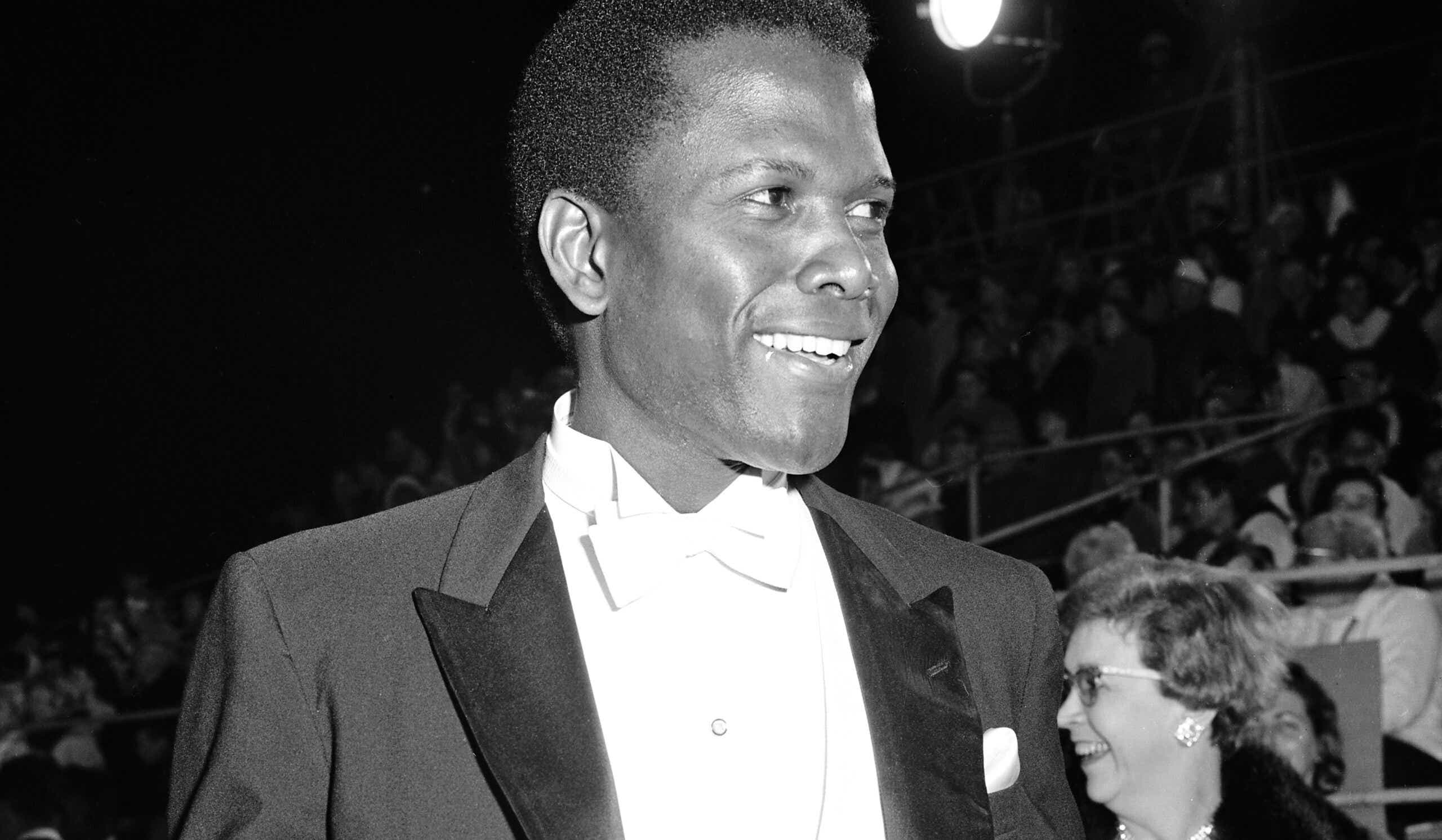In 1964, despite the newly-minted Civil Rights Act, segregation continued to be the norm across much of the United States. White supremacists attacked Black demonstrations in the South, and decades of brutality by a racist police force led to riots in New York, Philadelphia, Chicago, and Jersey City. Freedom Summer saw three civil rights activists abducted and slaughtered in Mississippi.
Against this backdrop, a 37-year-old Sidney Poitier became the first Black man to win the Academy Award for best actor.
His speech was typically understated, even by the more restrained standards of the time, and made no reference to the extraordinary significance of his victory. Watching him give his thanks without any knowledge of the context, you’d have no idea that Poitier had defied centuries of oppression to reach that stage. His melodious voice and handsome smile were those of a born Hollywood star.
By the time he won his Oscar for his performance as a handyman in Lillies Of The Field, Poitier, who was raised by his family in the Bahamas, had been making his mark in Hollywood for more than a decade. His breakthrough role in 1950’s No Way Out set the scene, with Poitier playing a Black doctor who must treat a White racist hoodlum. He followed this with several more movies which exemplified America’s racial attitudes at the time, from 1955’s Blackboard Jungle, to The Defiant Ones alongside Tony Curtis in 1958, and 1961’s A Raisin In The Sun.
He was only just getting started. A trio of movies in 1967 all saw Poitier tackle race relations, from To Sir, with Love, to Guess Who’s Coming to Dinner, and In the Heat of the Night. The following year, Poitier was voted America’s top box office star.

His success wasn’t uncontroversial. As the Civil Rights movement became louder and the push for Black power increasingly radicalized, Poitier’s softly-spoken reservedness grew out of step with the prevailing mood. In the fall of 1967, Black playwright and critic Clifford Mason wrote an article for the New York Times titled “Why Does White America Love Sidney Poitier So?”, giving voice to a rising objection against the sanitized Blackness accepted by Hollywood. Despite his excellent acting and undeniable grace, Mason wrote that Poitier continued to play “a good guy in a totally white world, with no wife, no sweetheart, no woman to love or kiss, helping the white man solve the white man’s problem.”
Over the next couple of decades, Poitier withdrew from acting and redirected his efforts to directing, but the mark he left as a performer and filmmaker was undeniable. By his death aged 94 on January 6, 2022, Poitier had received two Academy Award nominations, ten Golden Globes nominations, two Primetime Emmy Awards nominations, six BAFTA nominations, eight Laurel nominations, and one Screen Actors Guild Awards nomination.
In 1982, he received the Golden Globe Cecil B. DeMille Award and in 2000, he was given the Screen Actors Guild Life Achievement Award. In 2002, he received an Academy Honorary Award in recognition of his “remarkable accomplishments as an artist and as a human being”. In 2016, he was awarded the BAFTA Fellowship for outstanding lifetime achievement in film.

He was also granted a knighthood by Queen Elizabeth II in 1974, received the Kennedy Center Honor in 1995, and in 2009, he was awarded the Presidential Medal of Freedom, the highest civilian honor in the U.S., by President Obama.
Since Poitier’s death, tributes have poured in from Black actors and filmmakers. All recognize his immeasurable contribution to cinema, and the invaluable groundwork he laid that ultimately changed the way Black people are portrayed on-screen.
Halle Berry, who in 2002 became the first (and so far, only) Black woman to win the Oscar for Best Actress, wrote: “My dear Sidney, an enormous part of my soul weeps at your passing. In your ninety-four years on this planet, you left an indelible mark with your extraordinary talent, paving the way for Black people to be seen and heard in the fullness of who we are.
You were an iconic trailblazer; yours was a life well-lived. I grew up idolizing you and will always remember the day when I first met you. It is the only time in my life when I’ve been rendered speechless! There I sat, with my words glued together, and you were as gracious and charming then as you would be during our decades of friendship to follow. Rest in peace, beloved Sidney. You are and always will be the true measure of a man.”
The Acadamy shared a quote from Denzel Washington after his Best Actor win for Training Day in 2002: “I’ll always be chasing you, Sidney. I’ll always be following in your footsteps. There’s nothing I would rather do, sir,” he said.
Former President Obama also shared a personal token of appreciation on January 7. “Through his groundbreaking roles and singular talent, Sidney Poitier epitomized dignity and grace, revealing the power of movies to bring us closer together,” he wrote on Twitter. “He also opened doors for a generation of actors. Michelle and I send our love to his family and legion of fans.”
Below are just a few more of the messages of love and gratitude that have been shared about Sidney Poitier since his death.









